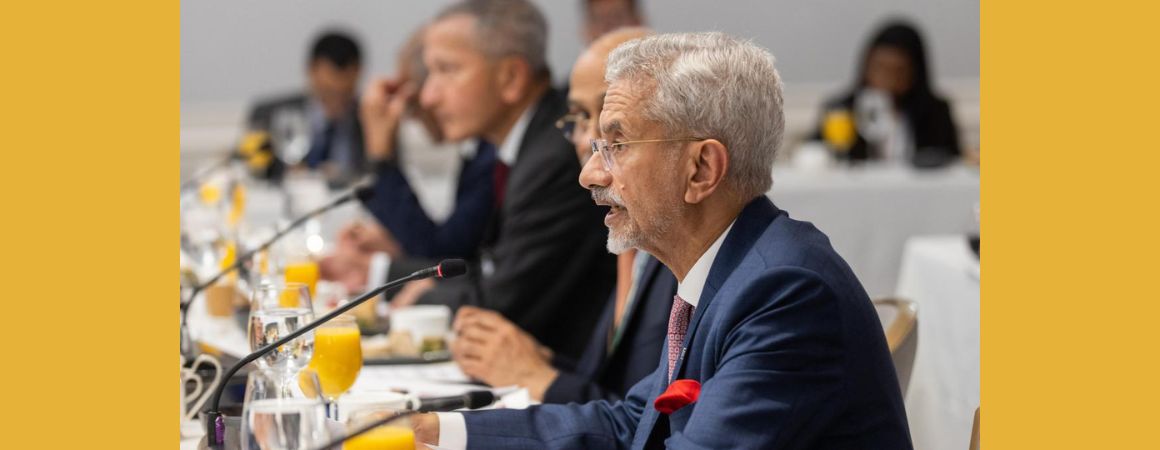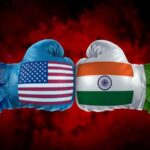India hosts meet of 20 ‘like-minded’ countries on sidelines of UNGA; External Affairs Minister says multilateralism under attack and international organisations are being rendered ineffective
The concept of multilateralism is “under attack”, even as countries of the Global South are seeking more solutions from international organisations like the United Nations, External Affairs Minister S. Jaishankar has said.
Speaking at a specially convened “high-level meeting of like-minded Global South countries” in New York on Tuesday (September 23, 2025), Mr. Jaishankar pitched for more consultations between developing countries and a joint push for UN reforms.
He said the state of the world was a cause for concern for all countries, listing a number of “shocks”, including the pandemic, conflicts in Ukraine and Gaza, climate change, and trade uncertainties. He also called for an “urgent resolution of conflicts that are impacting food, fertilizer and energy security”. Twenty countries took part in the meeting hosted by India, including 10 at the Ministerial level.
“In face of such proliferation of concerns and multiplicity of risks, it is natural that the Global South would turn to multilateralism for solutions,” Mr. Jaishankar said. “Unfortunately, there too we are presented with a very disappointing prospect. The very concept of multilateralism is under attack. International organisations are being rendered ineffective or starved of resources,” he added.
Nine countries from Asia, five from the Americas (South and North, including the Caribbean), and six from Africa took part in the meeting held on the sidelines of the UN General Assembly. Only Sri Lanka, the Maldives, and Mauritius were present from India’s neighbourhood among the group. The meeting of the “like-minded” countries was the first of its kind, although officials did not confirm whether India now planned to hold such meetings regularly. India has hosted the “Voice of Global South Summit” in which about 125 countries have been invited for the past three years. It is unclear why the 20 countries present at the UN meeting had been chosen as “like-minded” rather than others, and whether others had also been invited but declined due to scheduling issues.
The countries represented at the meeting included Bahrain, Indonesia, Qatar, Singapore, and Vietnam from Asia; St. Lucia, Trinidad and Tobago, Cuba, and Jamaica from North America; Suriname from South America; and Chad, Ghana, Lesotho, Morocco, Nigeria, and Somalia from Africa.
Mr. Jaishankar did not name any country for the “attacks on multilateralism”, but his comments came a day after U.S. President Donald Trump’s UNGA address.
In his address, Mr. Trump criticised the UN system for not delivering peace in various conflicts, claiming he had resolved seven conflicts in the past few months, including the India-Pakistan conflict, without any help from the UN.
The U.S. has drastically cut its funding for the UN this year and withdrawn from several UN organisations, including the UN Human Rights Council and UNESCO. It has called for a review of other memberships in the UN system.
Global South must work together, says Jaishankar
India hosts meet of 20 ‘like-minded’ countries on sidelines of UNGA; External Affairs Minister says multilateralism under attack and international organisations are being rendered ineffective
The concept of multilateralism is “under attack”, even as countries of the Global South are seeking more solutions from international organisations like the United Nations, External Affairs Minister S. Jaishankar has said.
Speaking at a specially convened “high-level meeting of like-minded Global South countries” in New York on Tuesday (September 23, 2025), Mr. Jaishankar pitched for more consultations between developing countries and a joint push for UN reforms.
He said the state of the world was a cause for concern for all countries, listing a number of “shocks”, including the pandemic, conflicts in Ukraine and Gaza, climate change, and trade uncertainties. He also called for an “urgent resolution of conflicts that are impacting food, fertilizer and energy security”. Twenty countries took part in the meeting hosted by India, including 10 at the Ministerial level.
“In face of such proliferation of concerns and multiplicity of risks, it is natural that the Global South would turn to multilateralism for solutions,” Mr. Jaishankar said. “Unfortunately, there too we are presented with a very disappointing prospect. The very concept of multilateralism is under attack. International organisations are being rendered ineffective or starved of resources,” he added.
Nine countries from Asia, five from the Americas (South and North, including the Caribbean), and six from Africa took part in the meeting held on the sidelines of the UN General Assembly. Only Sri Lanka, the Maldives, and Mauritius were present from India’s neighbourhood among the group. The meeting of the “like-minded” countries was the first of its kind, although officials did not confirm whether India now planned to hold such meetings regularly. India has hosted the “Voice of Global South Summit” in which about 125 countries have been invited for the past three years. It is unclear why the 20 countries present at the UN meeting had been chosen as “like-minded” rather than others, and whether others had also been invited but declined due to scheduling issues.
The countries represented at the meeting included Bahrain, Indonesia, Qatar, Singapore, and Vietnam from Asia; St. Lucia, Trinidad and Tobago, Cuba, and Jamaica from North America; Suriname from South America; and Chad, Ghana, Lesotho, Morocco, Nigeria, and Somalia from Africa.
Mr. Jaishankar did not name any country for the “attacks on multilateralism”, but his comments came a day after U.S. President Donald Trump’s UNGA address.
In his address, Mr. Trump criticised the UN system for not delivering peace in various conflicts, claiming he had resolved seven conflicts in the past few months, including the India-Pakistan conflict, without any help from the UN.
The U.S. has drastically cut its funding for the UN this year and withdrawn from several UN organisations, including the UN Human Rights Council and UNESCO. It has called for a review of other memberships in the UN system.






NO COMMENT